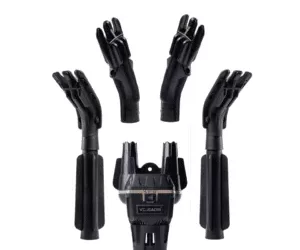You may experience neuropathic pain if your nervous system is injured or malfunctioning. The peripheral nerves, spinal cord, and brain, all components of the nervous system, can produce pain.
The central nervous system includes the brain and spinal cord. Peripheral nerves provide power to your organs, arms, legs, fingers, and toes, among other bodily parts.
Damaged nerve fibres send erroneous signals to pain centres. A nerve injury can cause changes in nerve function both in the area of the central nervous system where the lesion occurred and elsewhere (central sensitization).
An alteration in the function of one or more nerves is referred to as neuropathy. Diabetes is responsible for around 30% of neuropathy occurrences. It is not always easy to pinpoint the source of nerve pain. A multitude of disorders might produce this type of discomfort.
INDICATORS AND CAUSES
What are some instances that can make you nervous?
Nerve discomfort can be a symptom of neurodegenerative diseases such as alcoholism.
Diabetes research.
Facial nerve dysfunction.
The HIV/AIDS virus.
Central nervous system syndromes such as multiple sclerosis, Parkinson’s disease, and stroke
The syndrome of complex regional pain
Shingles made of asphalt Postherpetic neuralgia is the term use to describe prolonged pain after shingles.
Chemotherapy medications are another factor (cisplatin, paclitaxel, vincristine, etc.).
Radiation therapy
Amputation may cause fake agony.
Spinal nerve inflammation or compression,
Nerve injury caused by surgery or trauma,
Tumours that grow on or impinge on nerves.
What signs point to neuropathic pain?
If you have neuropathic pain, you may experience a variety of symptoms. Here are a few examples:
Natural pain (pain caused by nothing else): Pain that shoots, burns, stabs, or feels like an electric shock; tingling, numbness, or the sensation of “pins and needles” caused by pressure, cold, a gentle touch across the skin, and so on. This disorder is known as allodynia. Evoked pain is pain that is exacerbate by something that causes pain in general, such as heat or a pinprick. Hyperalgesia is the medical term for this sort of pain.
an unexpected and inexplicable occurrence of an unpleasant, unpleasant feeling (dysesthesia).
Both pain and a lack of sleep can make it harder to sleep and lead to mental health problems.
Pain commonly felt in reaction to a strong stimulation may reduce (hypoalgesia).
EVALUATION AND ANALYSIS
How can doctors recognise neuropathic pain in patients?
Your doctor or nurse will perform a physical examination and interview you about your medical history. If your doctor suspects or knows you have nerve damage, he or she will be able to identify the usual symptoms of neuropathic pain. Your doctor will then analyse the symptoms and establish the underlying cause of the neuropathy.
THE MANAGEMENT AND SUPERVISION OF
The treatment’s goals are as follows: treat the underlying ailment that is causing the problem (for example, radiation or surgery to shrink a tumour that is pressing on a nerve).
keep processes running normally; • relieve pain
Improve one’s quality of life
To treat neuropathic pain, a combination of treatments such as prescription medications, physical therapy, counselling, and even surgery is usually require.
Pregabalin 50mg and Lyrica 75 mg, two anticonvulsants.Is routinely administered to patients suffering from neuropathic pain.
Pregabalin, also known as Lyrica®, is a medication.
Antidepressants are also recommend by doctors
If your pain specialist provides anti-seizure or anti-depressant medicine, this does not always mean you have seizures or depression. Despite the fact that depression or anxiety can aggravate chronic pain, there are several treatments available.
Apply lidocaine or capsaicin patches, lotions, or ointments to the affected area. Because of its unpleasant side effects, opioid medicines can be difficult to use for an extended period of time and are less effective at treating pain produced by nerve injury.
Pain specialists can also do nerve blocks, which include injecting steroids, local anaesthetics, or other drugs directly into the pain-causing nerves.
If none of the aforementioned treatments has relieved your neuropathic pain, you may explore spinal cord stimulation, peripheral nerve stimulation, or brain stimulation.
How will people who have neuropathy recover?
Even while neuropathic pain is tough to manage, it does not usually risk your life. Combining rehabilitation with emotional, social, and mental health care produces the best results. With the help of a pain specialist and any or all of the aforementioned strategies, you will be able to control your pain to the point where it improves your quality of life.
